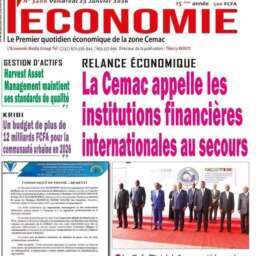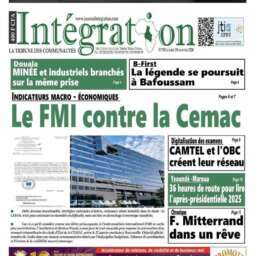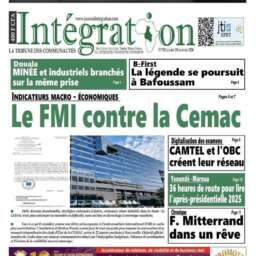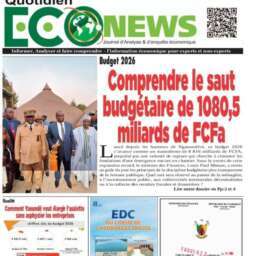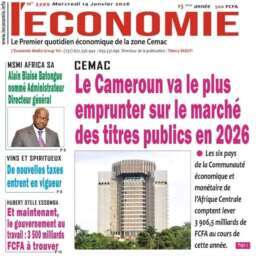(Business in Cameroon) – Cameroon’s Directorate General of Taxation (DGI) has introduced a detailed framework to resolve cases of double taxation through an amicable settlement procedure, marking a new step in the country’s implementation of international tax agreements. The circular, signed by the Director General of Taxation on 22 October 2025, defines how the so-called “procédure amiable” will apply under Cameroon’s network of double taxation treaties.
It sets out how taxpayers and tax authorities can seek to eliminate instances where the same income is taxed twice by two jurisdictions, whether due to conflicting interpretations of tax residence, differences in income classification, or disputes over transfer pricing and the allocation of profits between related companies.
The circular covers a broad range of tax categories, including corporate income tax, personal income tax, minimum lump-sum tax, special income tax, and payroll-based levies. It also applies to taxes on royalties, technical assistance payments, and housing credit contributions. Under the new framework, a taxpayer who believes that taxation in Cameroon contravenes the provisions of a double taxation agreement can lodge a formal request for relief within three years from the date of the first notification of the contested assessment.
The request must be addressed to the DGI’s Division of International Tax Relations and accompanied by evidence of double taxation, copies of tax notifications, and relevant documentation. The administration is required to acknowledge receipt and determine the admissibility of the request within 30 days.
If the application is accepted, the Cameroonian competent authority may attempt to resolve the issue unilaterally or enter into consultations with the tax administration of the other state concerned. In more complex cases, a joint commission may be convened to discuss the matter directly, with an indicative timeline of twenty-four months for conclusion.
The procedure may end with an agreement between the two administrations, a unilateral correction by one of the administrations, or a failure to reach consensus, in which case each state applies its domestic law. The circular emphasises that this amicable procedure does not suspend domestic tax audits or recovery measures and that it is independent of judicial remedies before national courts.
While the DGI presents the measure as a step toward transparency and investor confidence, analysts note that the mechanism follows the structure of the OECD’s Mutual Agreement Procedure, a system often criticised for its asymmetry and lack of enforceability. In practice, MAPs are an obligation of means rather than of result: tax administrations are only required to make reasonable efforts to resolve disputes but are not legally bound to eliminate double taxation. According to OECD data, the average duration of MAP cases globally exceeds 30 months, and only about half end in full resolution. For many developing countries with limited negotiation capacity, such procedures can be lengthy, opaque, and heavily dependent on the goodwill of the stronger treaty partner.
Risk associated with full and effective taxing rights
Cameroon’s circular does not provide for binding arbitration, a feature that would compel states to implement an outcome if mutual agreement fails. This omission reflects the approach taken by most African tax administrations, which remain cautious about mechanisms that could override domestic sovereignty.
However, it also means that taxpayers may face prolonged uncertainty while disputes between administrations remain unresolved. Critics from civil society argue that this configuration risks reproducing the same imbalance that has long characterised international tax cooperation, where developing countries have little leverage in bilateral negotiations and limited resources to sustain prolonged technical consultations.
The new procedure arrives at a moment when the question of global tax dispute resolution is being re-examined under the United Nations. In Nairobi, delegates are negotiating the terms of a UN Framework Convention on International Tax Cooperation, which includes a protocol on dispute prevention and resolution.
Civil society organisations have called for this process to establish a multilateral and equitable mechanism, with stronger guarantees for transparency, capacity-building, and accountability. They caution that the proliferation of national initiatives inspired by the OECD model could fragment the landscape and entrench a system in which outcomes depend on each state’s bargaining power rather than on universally agreed standards.
For Cameroon, the introduction of the MAP framework is a significant administrative reform. It aligns domestic practice with the procedural standards expected under modern tax treaties and provides a structured path for cross-border taxpayers seeking relief. Yet it also exposes the structural constraints of a model that relies on negotiation between unequally matched administrations.
As discussions in Nairobi move toward defining a truly global dispute-resolution mechanism under UN auspices, the Cameroonian experience illustrates both the progress achieved in institutionalising cross-border tax dialogue and the limits of doing so within an architecture that remains bilateral, discretionary, and difficult to access for the weakest participants in the international tax system.
Mercy Fosoh and Idriss Linge









